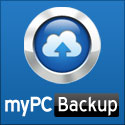Those who grew up in the era before computers were prevalent in both the personal and professional spheres are likely keen on the notion of old-school, physical file storage. Having a hard copy that you can hold in your hand is somehow reassuring, especially with the uncertainty of computers that could crash at any moment, seemingly without reason. But as computer and online technologies continue to advance, more and more options are becoming available, and many are fairly reliable. Of course, there’s no guarantee that the power won’t go out somewhere, denying you access to electronically stored business files, but these days there are so many backups in place that it would take a lot to lose stored files, especially those on a cloud network. So which type of storage is right for your business? Here are a few things to consider before you decide.
Interestingly enough, both physical and electronic files face many of the same threats, although in different ways. For example, one potential threat is loss of documents. For files that are stored physically this could mean that they have been misplaced, stolen, or lost due to an accident like a fire or water damage. For electronic files they could become corrupted, get deleted accidentally, or be broken into by hackers. So there are risks in either case. Security is a concern and in both instances you’ll have to rely on others to address these needs. Physical storage spaces may have fences, surveillance cameras, or even security guards while cloud storage may have a number of security features, including password protection, encryption, firewalls, and data spread across multiple servers such as what you see here.
Both will also come with an associated cost, and this will vary depending on the amount of storage space you need and the level of security you prefer. So the truth is that there are pros and cons to each type of storage solution and you will simply have to determine which provides the more efficient means of accessing your files. These days it’s often easier, for file sharing purposes, to utilize online storage, and the cloud provides a relatively safe and affordable means of doing so (although you’ll pay for the service you won’t have the additional costs and hassles of hardware storage and maintenance to contend with). But for some people, storing hard copies of files offsite may simply seem safer, if not quite as expedient. Each business must decide based on their own needs and preferences.
Bio: Evan Fischer is a freelance writer and part-time student at California Lutheran University in Thousand Oaks, California. He enjoys writing about the latest tech news for a variety of companies and discovering new and innovative gadgets.








This is a nice blog. For me, no one beats Dropbox for cloud-storage. Easy to use for records management and it’s free.